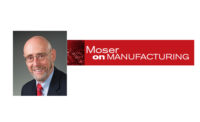All things being equal, most U.S. consumers would prefer to buy products that are made in the USA. So when a company claims a product is made in this country when it’s not, it can get burned.
That’s what happened to Williams-Sonoma Inc. earlier this year. In March, the Federal Trade Commission fined the San Francisco-based retailer $1 million for falsely claiming that its Goldtouch Bakeware, Rejuvenation brand furniture, and certain Pottery Barn products were made in the USA.
Back in 2018, customer complaints alerted the FTC that Pottery Barn Teen organic mattress pads advertised as “crafted in America from local and imported materials” were actually made in China. Williams Sonoma claimed this was a unique goof from someone transposing product numbers, and it had procedures in place to prevent any actual deception regarding country of origin. The FTC accepted that explanation and closed the investigation.
Since then, the FTC found that Williams-Sonoma marketing materials “represented that all Goldtouch Bakeware, Rejuvenation-branded products, and Pottery Barn Teen and Pottery Barn Kids-branded upholstered furniture products, including raw materials and subcomponents, were all or virtually all made in the United States.” In truth, the agency says, numerous products from those brands are “wholly imported, or contain significant imported materials or components.”
To review, according to the FTC’s guidelines, a manufacturer choosing to make an unqualified made-in-the-USA claim may do so only if the product is “all or virtually all” made in the USA, meaning that all significant parts and processing that go into the product are of domestic origin. The product should contain no or negligible foreign content. A manufacturer making a made-in-the-USA claim must have “competent and reliable evidence” to demonstrate that the product is all or virtually all made in the USA, including proof that final assembly or processing occurred in the USA.
Manufacturers of products that do not meet the criteria for unqualified claims may nevertheless make “qualified” country of origin claims—such as “manufactured in the USA with domestic and imported parts”—provided there is significant domestic content or processing.



